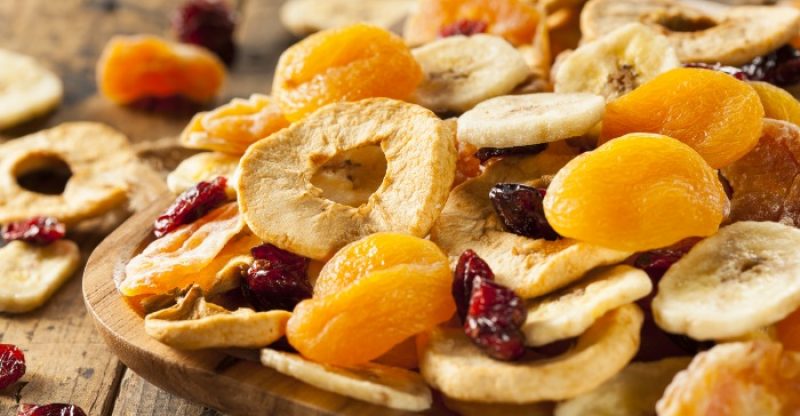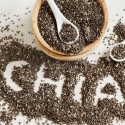Dried Fruits: Are They Good or Bad for You?
All health-conscious individuals who keep a strict eye on their weight and daily calorie intake often ask if consuming dried fruits is good for their health.
Nutritionists, dieticians, and doctors recommend including a portion of your everyday meals, as they help you to keep your weight under control.
Dried fruits also make your meals more wholesome, and since they contain more minerals, fiber, and vitamins than fresh fruits, you should consume them in tiny portions.
But what is the exact portion or quantity that you will need to eat daily on average?
You must bear in mind that the adverse effects outweigh the benefits when you overeat any healthy food item, and that holds true for dried fruits, as well.
Whether you will benefit from eating them invariably depends upon a few specific factors, e.g., size or portion, and the natural sugar content.
Some types of fruit like cranberries, tangerines, and apricots that taste sour are often coated with natural sugar or sweeteners to sweeten them, which increases their caloric content.
After reading this article, you’ll have learned about dried fruits, their health benefits, and the exact serving or portion that would enable you to take advantage of these benefits.
Dried Fruits: What are They?
Dried fruits are desiccated or dehydrated versions of fresh fruit.
In other words, dried fruit is a more concentrated, and hence a purer form, of fruit.
For instance, when you desiccate grapes, they become raisins with a high concentration of nutrients.
Raisins are the most readily available of all dried fruits (1).
The other kinds that are widely available are dates, figs, apricots, and prunes.
Some types that have a sour-to-tart taste, like cranberries, tangerines, apples, grapefruit, mandarins, and lemons are laced with natural sugars and sold as ‘candied fruits.’
Since these are small, you could be fooled into consuming a significant portion, (more than you should), and thereby end up ingesting more calories than you think you are.
Recommended Consumption
So, how much dried fruit should you eat?
The rule of thumb is that one cupful of fresh fruits is roughly equivalent to ½ cup dried fruits.
That implies that a half-cup of raisins, apricots, or cranberries contains twice the calories and carbohydrates as a full cup of their fresh version.
Dried fruits tend to keep longer than fresh fruits.
It is for this reason that they can be used as handy snacks when you are going on an extended holiday where you may not always have access to a refrigerator.
Takeaway: Dried fruits are the concentrated form of fresh fruits.
Raisins are the most prevalent form of dried fruit, and apricots, prunes, figs, and dates follow closely.
Dried Fruits Abound in Fiber, Antioxidants, and Micronutrients
Dried fruits not only contain more calories than their fresh counterparts, but they also abound in fiber as well as antioxidants (mainly polyphenols) which makes them incredibly wholesome.
A significant proportion of the water-soluble vitamins such as A and C are lost during the process of desiccation.
But their loss is more than compensated for by the presence of other nutrients that become more concentrated (2).
According to the USDA Agricultural Research Service, the mineral content in dried fruits is almost the same as that in fresh fruits (nearly 100%).
By weight, the content of fiber, minerals, and vitamins is about 3.5 times more in dried fruit as opposed to an equal serving of its fresh version.
Hence, you’d need a tiny portion of dried fruits to meet a good proportion of your daily dose of several minerals and vitamins, including folate (3).
There are, however, a few caveats should keep in mind.
The drying process removes vitamins A and C to a great extent.
Most dry fruits retain 50% of their original value of vitamin A and just 20% of their original amount of vitamin C.
However, a few fruits such as cherries and apricots still contain a generous percentage of vitamin A, even after drying.
Dried fruits contain plenty of fiber and the polyphenols that have antioxidant properties.
Polyphenols offer numerous health benefits, including improved digestion, better blood circulation, and reduced oxidative damage, to name a few.
Takeaway: Since dried fruits contain a concentrated amount of minerals, vitamins, carbohydrates, calories, and micronutrients, you should consume a much smaller serving.
Dried fruits are also rich in antioxidants, like polyphenols, that are good for your wellbeing in many ways.
Health Benefits of Dried Fruits
A typical dried fruit contains more fiber and higher quantities of antioxidants than fresh fruit and thus has multiple health benefits.
For instance, the fiber helps in combating obesity, heart disease, and a few forms of cancer (4).
Individuals who consumed food items high in plant phenols were found to be less susceptible to debilitating brain disease, and some types of cancer, diabetes, and heart disease.
Plant phenols (antioxidants are one type) are present in significant amounts in dried fruits.
Takeaway: Including dried fruits in your diet regularly will satisfy your body’s daily nutrient requirement.
At the same time, you are more likely to stay slim and trim.
Prunes Help Combat Numerous Diseases
Dried plums, or prunes, are very nutritious and wholesome, as they are powerhouses of fiber, vitamins, and minerals such as retinol, potassium, and iron.
Prunes contain high amounts of beta-carotene, vitamin K, B vitamins, and the minerals calcium, potassium, and iron (5).
Prunes are an extremely popular dried fruit, as they are natural laxatives.
This laxative effect is derived from their rich fiber and sorbitol (a kind of sugar alcohol) content.
Many different types of fruits contain sorbitol as a natural ingredient (6).
Routine intake of prunes may lead to improvement of bowel movements, preventing constipation and bettering stool consistency.
Findings from several studies have concluded that prunes could be more effective in helping you get relief from illness than psyllium husk.
The health benefits of prunes include helping to check LDL cholesterol’s (regarded as bad cholesterol) oxidation, thereby reducing your risk of suffering from some types of cancer and heart disease.
Eating prunes also improves vision and heart health, safeguards against osteoporosis, stimulates hair growth, and helps maintain skin tone.
Finally, prunes help keep blood sugar levels under control.
Takeaway: The high sorbitol and fiber content of prunes make them natural laxatives.
Prunes are especially effective against oxidative stress and damage, as well as minimize the risk of suffering from osteoporosis.
Raisins May Help Treat and Fight Specific Diseases
Raisins are processed from dried grapes.
Grapes are either dried naturally under sunlight, or dehydrated artificially, lending them a black, golden, or green color.
Raisins contain high levels of plant phenols, potassium, and fiber, and several other minerals and vitamins (7).
Dried grapes have low insulin and glycemic indexes, which means you can eat raisins in small quantities without having to worry about your insulin and blood sugar levels rising unduly.
Several studies carried out on the purported health benefits of raisins have demonstrated that this dried fruit can:
- Reduce hypertension and keep blood pressure from spiking anomalously;
- Help in controlling blood sugar levels;
- Decrease the proportion of bad cholesterol in the bloodstream;
- Help relieve constipation;
- Help treat anemia;
- Aid in checking acidosis;
- Decrease the risk of heart disease.
Takeaway: Raisins contain significant amounts of plant compounds, as well as minerals like potassium and fiber.
Regular consumption of raisins will help you to keep risks associated with type 2 diabetes, hypertension, and coronary heart disease at bay.
Dates are Beneficial for Pregnant Women
Dates are the fruits of date palm trees that mainly thrive in subtropical and tropical regions around the world.
These fruits taste naturally sweet and contain a range of essential nutrients.
And dates are extremely rich in dietary potassium.
Dates contain about 80% sugar, and minuscule amounts of fiber and protein, as well as trace elements like boron, magnesium, zinc, selenium, manganese, magnesium, fluorine, copper, and cobalt.
Of all the dried fruits containing plenty of antioxidants, dates are one.
Therefore including dates in your everyday diet may go a long way toward enabling your body to avoid oxidative damage (8).
Dates have been found to be beneficial especially for women who are pregnant.
Women who habitually take dates in their final trimester of pregnancy typically experience less pain during childbirth.
In a trial conducted on pregnant women, the participants were told to eat dates in the final weeks leading to delivery.
Of all the participants who consumed dates, only 4% had to undergo induced labor, while 21% of those who did not eat the dried fruit had to (9).
Laboratory tests conducted on animals have established that dates may be useful in the treatment of impotence in males.
Nevertheless, similar trials have not yet been performed on humans.
Takeaway: Dates contain substantial amounts of dietary potassium, iron, fiber, and antioxidants.
Consuming dates helps relieve oxidative damage, and promote cervical dilation in women who have conceived.
Dried Fruits Contain Plenty of Calories and Natural Sugars
Since most fruits have a significant amount of natural sugars, drying them condenses the sugar in a smaller and more compact package.
No wonder, then, that dried fruits tend to have a high percentage of fructose and glucose, as well as calories.
The sugar content in raisins, dates, prunes, apricots, and figs is 59%, 64-66%, 38%, 53%, and 48%, respectively.
Of these percentages of sugar, the proportion of fructose is highest, varying from 22-51%.
High intake of fructose is associated with risks of suffering from obesity, heart disease, and type 2 diabetes.
Takeaway: Dried fruits have abundant quantities of sugar and calories, and therefore eating large amounts might contribute to obesity, as well as several other health problems (12).
Don’t Choose Highly-Processed Dried Fruits
A few kinds of dried fruits are very sour, like cranberries, apples, bananas, and lemons.
To make dried fruits more palatable, food processing companies coat them with extra sugar and preservatives before subjecting them to dehydration.
This is the reason some dried fruits are popularly called ‘candied fruits.’
Consuming highly-processed dried fruits could make you more vulnerable to heart disease, hypertension, obesity, and maybe even some kinds of cancer.
Before you buy dried fruits from the supermarket or department store, carefully read the nutritional information and the ingredients listed on the packaging.
Takeaway: Dried fruits, particularly the sour varieties, are typically covered with corn syrup or natural sugar to make them sweet.
You should always read the nutritional information on the package to find out the product’s sugar content.
Stay Away from Dried Fruits that Contain Sulfites
To make dried fruits more tempting, many producers add sulfites, an artificial preservative.
Sulfites help preserve the palatability of dried fruits like apricots and prunes, as well as prevent discoloration (13).
However, some individuals are allergic to sulfites and may suffer from asthma attacks, stomach cramps, and skin rashes after consuming dried fruits containing them.
To minimize the chances of suffering from abdominal pains or skin rashes, sulfite-sensitive people should buy dried fruits that appear grayish or brown.
Dried fruits should also be stored in the air- and water-tight containers to prevent contamination by fungi, mold, and other toxic materials.
Takeaway: Dried fruits that contain sulfites could cause adverse effects in individuals who have a sulfite allergy.
At the same time, dried fruits not appropriately stored could be tainted by fungi.
Conclusion
As with any other healthy food item, dried fruits have both good and bad attributes.
Although dried fruits are not perfect in every respect, consuming them is better than snacking on chips, pretzels, and other processed or junk foods.
FDA Compliance
The information on this website has not been evaluated by the Food & Drug Administration or any other medical body. We do not aim to diagnose, treat, cure or prevent any illness or disease. Information is shared for educational purposes only. You must consult your doctor before acting on any content on this website, especially if you are pregnant, nursing, taking medication, or have a medical condition.
HOW WOULD YOU RATE THIS ARTICLE?






